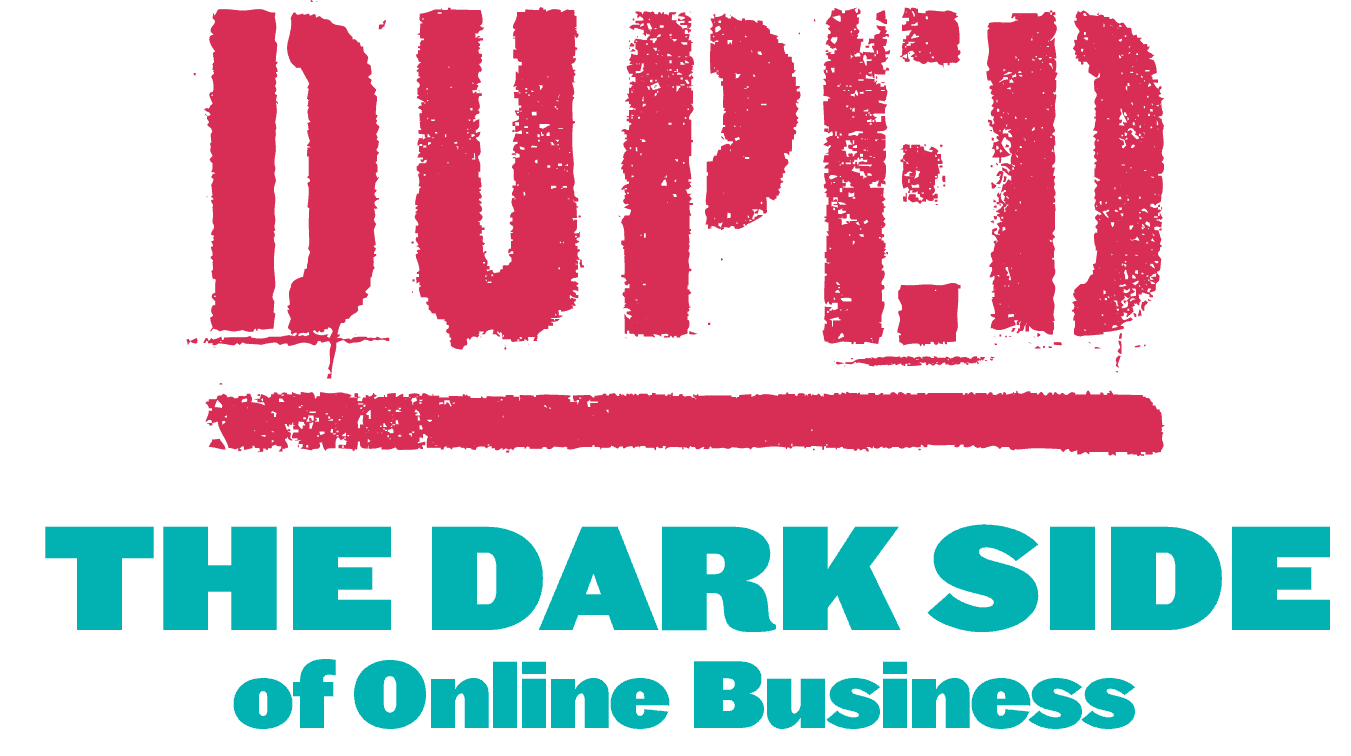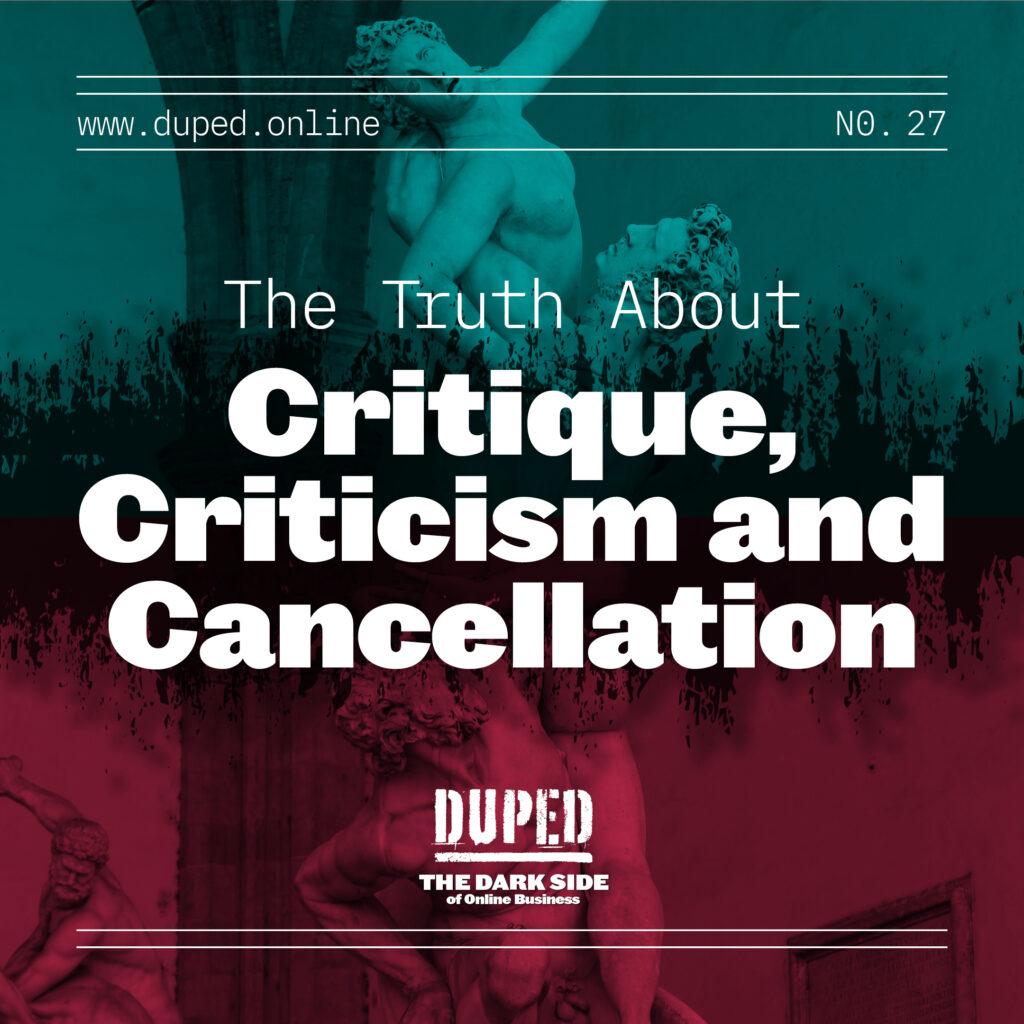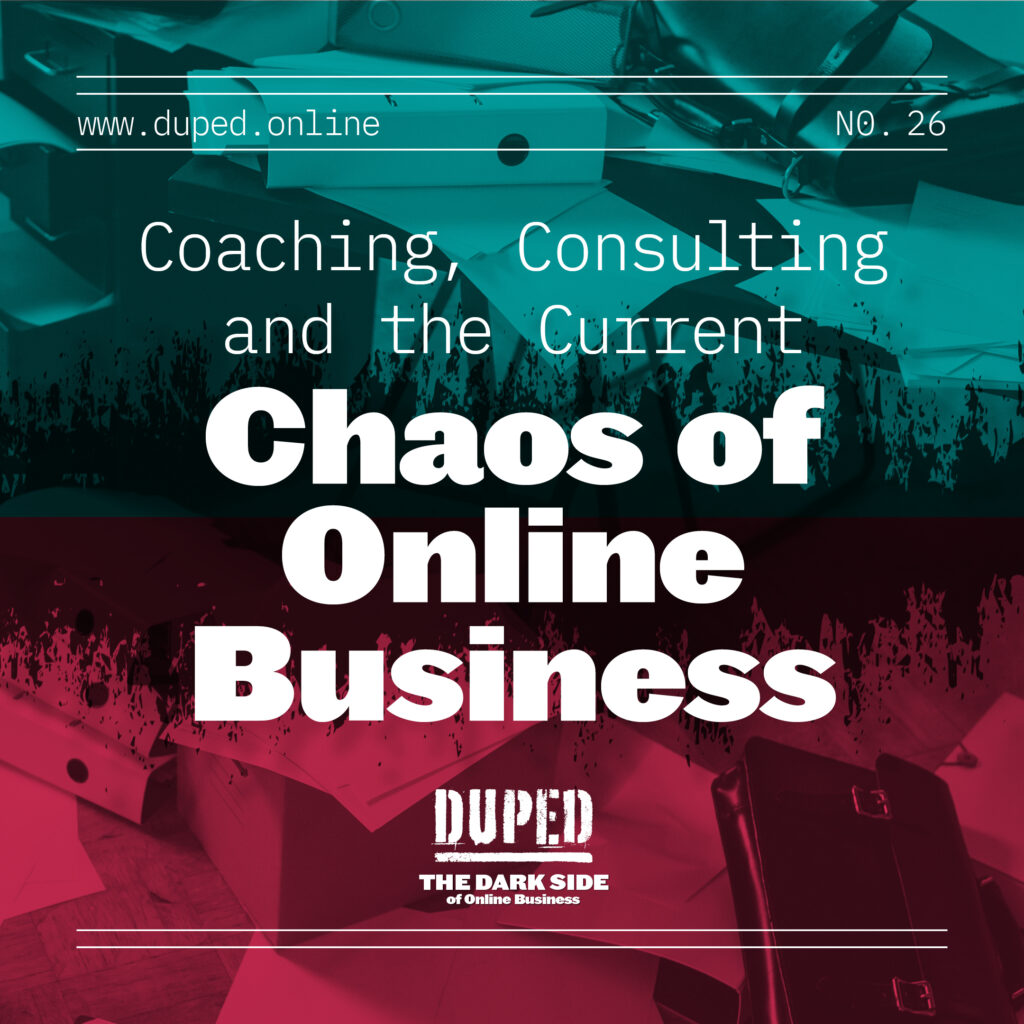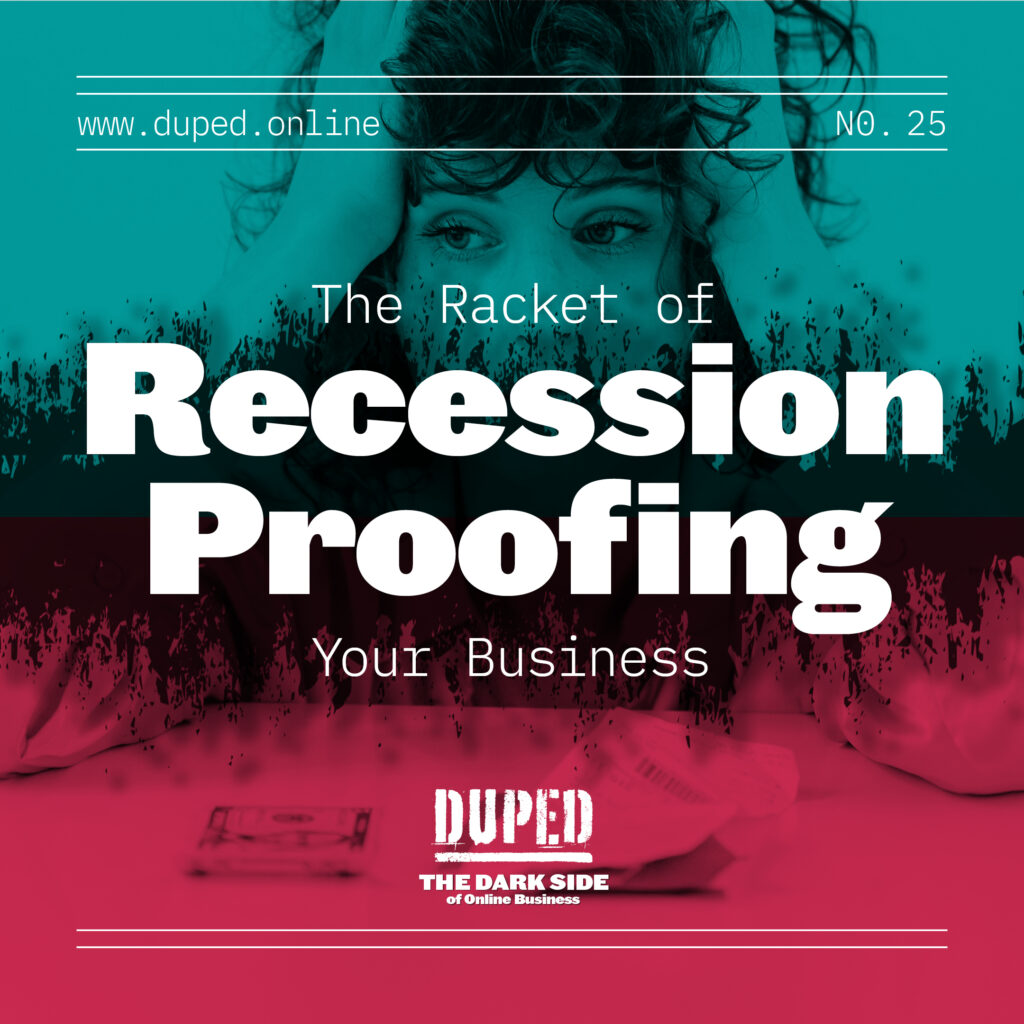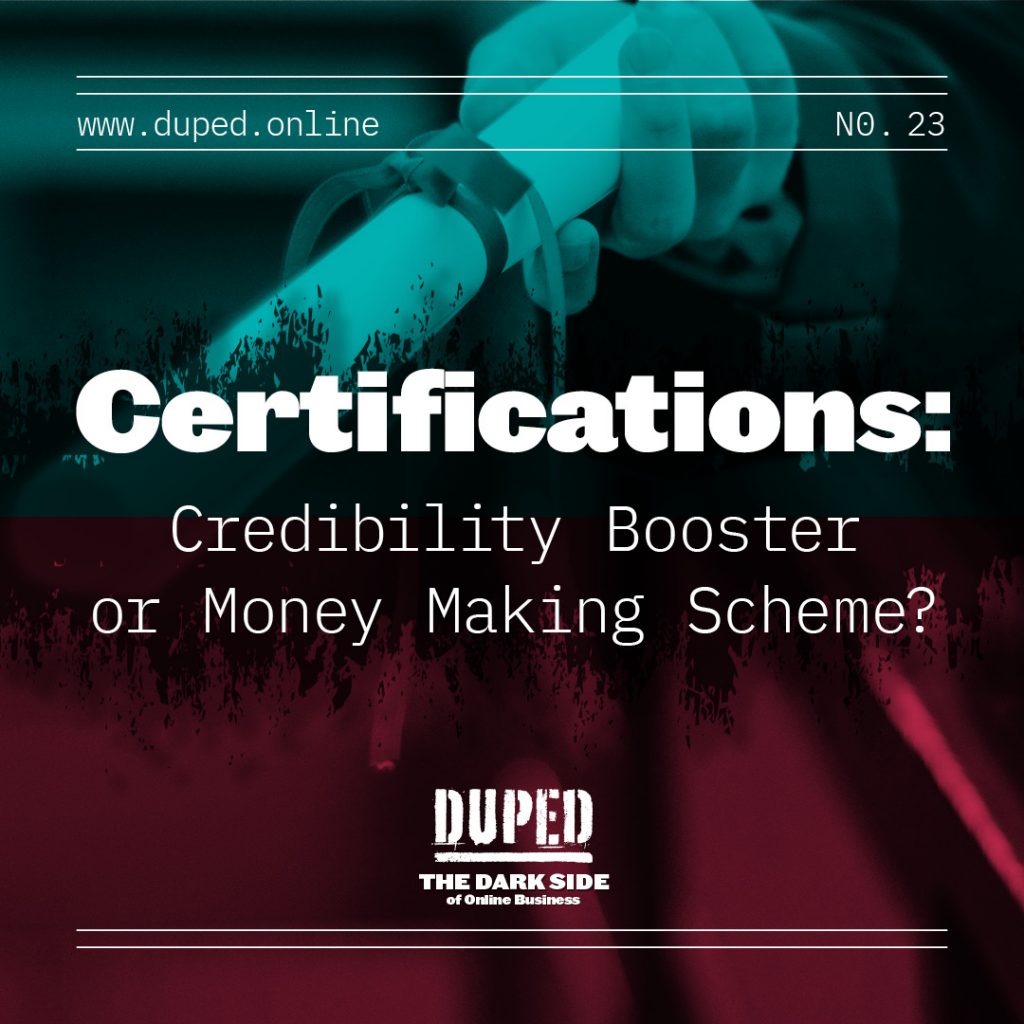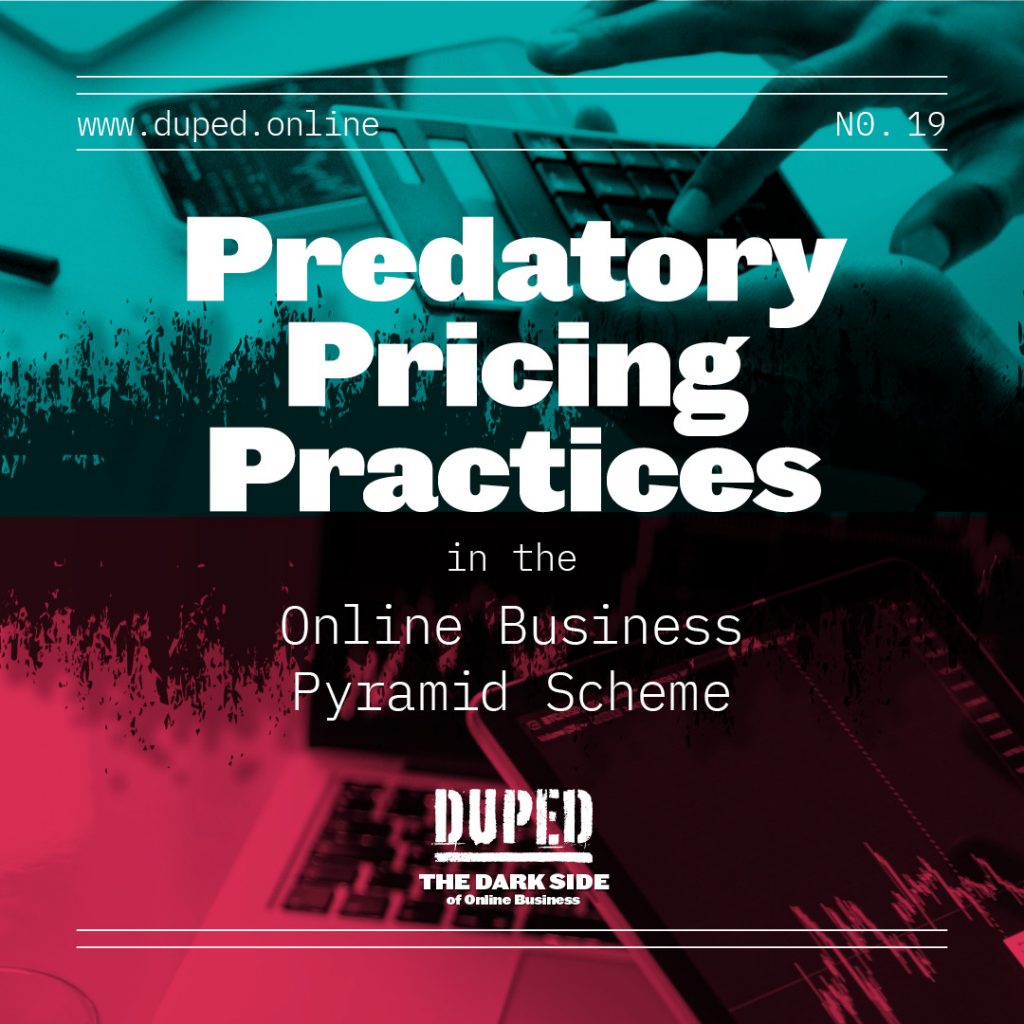
Predatory Pricing Practices in the Online Business Pyramid Scheme
We’ve all heard it before when it comes to pricing….charge what you’re worth. Just raise your price. Play big. Pricing is one area of online business that’s full of bad business advice.
In this episode, we’re diving into predatory pricing practices in online business, including answering the question….is this just one big pyramid scheme? Let’s do this!

One of the most critical factors in running your business is your pricing. Regardless of your business model or industry or anything else, your pricing can make, or break your business.
Pricing is complex and nuanced, but it’s also so important to your business. This is why we wanted to talk about what we see happening in the online business world and how these pricing practices are messing with all of us.
For this episode, we’re not going to try to not get bogged down in specific pricing tactics, and keep this at a high level with a look at the pricing culture and myths, and then three of the ways it impacts us as consumers and as business owners.
Online Business Pricing Myths and Stories
There’s no disputing the fact that your pricing impacts so much of what you do in your business. It impacts how you feel, and your ability to earn a living. It determines how you pay your team, and how profitable you are. It’s also a factor in how you market and sell your services.
All of that to say, pricing is of critical importance, which is why these pricing myths or stories that are so common in online business are worth unpacking.
#1. You Should Hide Your Price
In recent years it’s become increasingly trendy to not disclose your price. You’ll head to a sales page and be pushed to an application to book a call or watch a webinar.
The idea behind hiding the price is that you can’t trust your would-be client to decide without being coached. That they need more context so you can handle their objection.
This may look more like a sale process issue, but it’s really a pricing one as it’s a tactic that’s used to manipulate consumers into paying high prices.
There’s no transparency for consumers (and we’re talking about something that has a fixed price like a coaching package or a program) so they’re being swindled during the sales process.
That lack of transparency hurts us as an industry too, as it means we have these ever-escalating prices resulting in inflated pricing.
We have more to say on the impact of that, but from our point of view, hidden pricing only serves the seller as it manipulates the consumer using a series of micro-commitments, and possibly coercion.
You do NOT have to hide your prices to be successful. In fact, this goes beyond a myth right into garbage business practices. (And if you sell done-for-you services that require custom pricing, we’re not talking about you!)
#2. Magical and Mindset Driven Pricing
Another place we see problematic stories showing up about your pricing is how everything is chalked up to being about your mindset. Yes, your mindset is part of it, but the way this is talked about in online business is utterly ridiculous.
Not everything to do with money or pricing is a mindset issue. Period.
Pricing strategy should be rooted in numbers with a layer of mindset work involved. Not based on some ego-driven bullshit from a celebrity entrepreneur having a 7-figure mindset for your pricing. Or worse yet, the idea that you’re entitled to that pricing because you’re high vibe. (WTF does that even really mean!?!)
Your pricing should be based on inputs from the cost of delivery, to tools, to time, to the industry you serve, the clients you sell to and so much more. Your mindset may be a stumbling block as you do that, but it shouldn’t be the primary deciding factor in how you price anything, ever.
Most of all, your pricing should not be based on magical thinking about how if you sell two of these packages a month you’ll be all set. That’s a one-way ticket to being broke if there’s no actual demand for what you’re selling, and no one really wants it.
No matter what celebrity entrepreneurs may tell you on Instagram, high pricing doesn’t automatically attract clients. Truth? You need to consider what you can actually sell. Aspirational $5k a month pricing won’t mean anything if you’re not making any money.
#3. You Should Charge What You’re Worth
Closely related is the idea that you should charge what you’re worth. This is downright terrible pricing advice. After all, how do you determine your worth? There’s no way to put a price tag on that.
This myth is usually used as a way to get you to raise your prices, which isn’t actually a bad thing, The real problem is that this type of oversimplified trope is literally how many people in this industry teach pricing.
Yes, your pricing should feel good to you, but it also needs to be rooted in reality. It needs to feel good for your customers too. And let me tell you, I think this type of so-called pricing strategy is where we get into so many of the pricing problems that we have in the online business world today.
The Overton Window: Pricing Shifts in the Market
The Overton window, as defined by Conceptually.org is “the window of political possibility is the range of ideas the public is willing to consider and accept”.
It’s a political science concept, and it’s used to explain how the public’s acceptance of an issue like same-sex marriage. Politicians can’t just pick a policy, they need to act within an acceptable window. Over time that window will shift as public opinion evolves.
In the context of online business, there’s been a shifting Overton window in terms of what we’re willing to accept in terms of pricing.
A great example of this in action is how the baseline for a higher-end online course was $2k. Then it was $3k. And now we’re looking at $5k plus with the addition of weekly calls to the course and calling it a group program.
The pricing window has moved, so our expectations of what we’ll pay are higher. The only problem is that the pricing hasn’t increased because there’s more value or better results. It’s moved because of the relentless focus on finding ways to extract more money from consumers.
There’s been a sales job to convince us that these things are worth far more than they really ever could be.
Online Price Tax: Why Is the Price So High?
What we’re about to share next may not sit well with some of you, but it needs to be said. I’m going to ask that you keep an open mind until the end of the episode as these things all fit together, and we’re trying to keep this at a high level.
Along with the Overton window moving, online business has a problem with inflated pricing. Thanks so the extractive business practices being used, it’s seen as okay, or even desirable to charge inflated prices.
After all, how are you going to hit those 7 and 8-figure business goals otherwise?
The idea is that the price should be reflective of the transformation you deliver. The only problem is that in the majority of cases, that transformation fails to deliver. Things like inflated income claims and top 1% testimonials reinforce that the transformation is inevitable when really it is not.
We absolutely want people to get paid well for what they do. That’s not what we’re talking about.
What we want you to consider is that the pricing is simply designed to extract money from people with little regard for their results or their well-being. (No matter what the sales page may say.)
I often look at prices in this industry and frankly, I’m shocked. They would never stand up in the real world. When a coach with no training and less than a year of experience is pricing their services at 2x or 5x what a professional or a management consultant is, I have serious questions.
Welcome to the online business tax, where things are much more expensive because it’s an online business and we need to “invest at all costs.” Someone has to pay for the luxury lifestyle of those at the top of the industry.
So what we see aren’t pricing practices rooted in reality, it’s just downright terrible pricing advice resulting in inflated, unsustainable pricing that simply doesn’t work outside of this industry.
All of this brings us to the final point we want to make about pricing in online business and how this is a vicious cycle.
Online Business is a Culty Pyramid Scheme
We’ve talked before about how online business can be like an MLM, or even a cult at times because there are only a few people who ultimately profit, the same way the person at the top of the MLM upline or who’s running the cult does.
So much of the reason we have a moving Overton window and the online business tax is that we all need to charge more to afford to continuously invest in coaches and programs.
I know, it’s a tough truth to handle. But once you figure this out, you’ll not be able to stop thinking about it.
That’s why the most common pricing advice is that you need to charge more and that there’s an obsession with high-ticket pricing in this industry. For your coach to extract $25k from you for their mastermind, they need you to charge more to be able to bankroll it.
All of this? It’s the same way cults and MLMs operate. The parallels are very real, but the things that stand out to me are how the dream of “success” is sold, and how there are ever-escalating levels of commitment.
Haven’t we all heard the message that we need to go all-in, or that we should stop playing small? That has more to do with keeping us trapped in a cycle of “investing” than actually helping us build or run our businesses.
Online business is a pyramid scheme as only a few people ultimately succeed. Sure, you may meet with moderate success along the way, but you’re lining the pockets above you in the chain.
It’s only when you stop investing in all of these programs and coaches that you can clearly see how it impacts your pricing, and your ability to be profitable. Personally, once I stopped buying into this bullshit, I didn’t feel the need to charge more and more for my offers. I looked at the actual numbers and let that be my guide, not someone pushing their “system” on me.
Pricing Practices: What to Watch For
As we wrap up, we wanted to leave you with some ideas on what to watch for as both a consumer, and a business owner.
- Question Pricing Advice. Look at common pricing advice and “myths” and decide for yourself if they’re relevant to your business. So much of what’s out there is online business advice, not actual proven business advice.
- Do the Math. Learn about pricing strategy and what factors should be considered with your pricing. Pricing should be about your numbers, not your emotions.
- Money Mindset. Money mindset is real and valid, but it shouldn’t be running the show when it comes to your pricing.
- Don’t Believe the Hype. From the allure of high ticket pricing to the hype of how you’ll command high prices when you join a program, bring a critical eye to all of it. Remember, their price is justified every time you say yes.
- Watch for Tactics Designed to Manipulate. Tricky pricing tactics are everywhere in online business, so look at why things may be priced the way they are. Why is the price hidden? Why do I have to have a call? These things are all signs that your agency is being eroded and that your objections are about to get handled.
Links for This Episode
- Seriously Shady Sales Practices
- The Overton Window
- The High Ticket Hustle
- The Culty Side of Online Business
- A Little Bit Culty
- Sounds Like a Cult
- Dr. Hassan’s BITE Model
- Are Online Businesses the New MLMs
- Trust-First Pricing Principles
- How Much Should I Charge for My Services?
- Sunk Cost Fallacy
- Twin Flames Podcast
- Foot in the Door Technique
- Ascension Model Marketing
- Amex Study: The State of Women Owned Business 2019
Join the

Patreon

for only $7/month and get a
monthly bonus episode,
behind-the-scenes content
and more.
